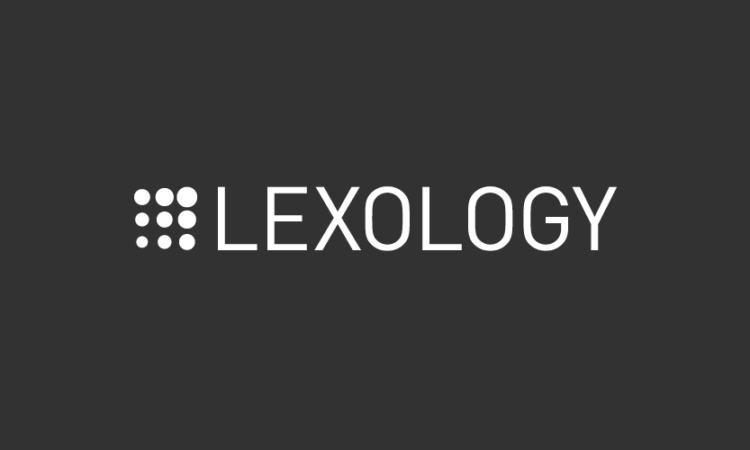ETH Staking Data Published; USDC Transfer Protocol Launches; OFAC Adds Public Keys to SDN List; DOJ Targets Crypto Market Manipulation

In this issue:
• ETH Staking Data Published, USDC Cross-Chain Transfer Protocol Launches
• IRS Modifies 2014 Virtual Currency Guidance
• OFAC Adds 20 Cryptocurrency Public Keys to SDN List
• DOJ Actions Target Crypto Market Manipulation and Money Laundering
ETH Staking Data Published, USDC Cross-Chain Transfer Protocol Launches
New data reflects that the recent amount of staking withdrawals on Ethereum has been balanced by a roughly equal amount of deposits. According to reports, Ethereum staking withdrawals started ramping up for the third time/round on April 24, with a major U.S. crypto exchange making the largest share of these withdrawals. The last large batch on April 24 reportedly totaled 61,608 ETH in principal and rewards. However, data also reflects that there were 63,009 ETH in ETH deposits around that same time. Such activity reportedly alleviates concerns over a mass exodus of staked ETH following the Shapella upgrade – the hard fork upgrade that occurred earlier this month, marking the completion of Ethereum’s multiyear transition from a proof of work consensus mechanism to proof of stake.
In other recent news, Circle, a global fintech company and founder of the USDC stablecoin, recently announced the launch of its Cross-Chain Transfer Protocol (CCTP), a permissionless on-chain utility that reportedly eliminates the need to use a conventional “lock-and-mint” bridge, which locks native USDC on the source chain (incurring a potential security risk) and then mints a synthetic/bridged version of USDC on the destination chain (resulting in fragmentation of liquidity and poor user experience). Instead, CCTP is exposed through smart contracts, which are designed to allow composability of additional functionality beyond just burning and minting native USDC. CCTP reportedly can burn native USDC on a source chain and mint native USDC of the same amount on a destination chain. Developers can embed CCTP into their apps to provide users with what Circle calls “the most capital-efficient way to transfer USDC across chains, setting the stage for a united and mainstream Web3.” CCTP is available on mainnet for Ethereum and Avalanche, as well as on Goerli testnet for Ethereum and Fuji testnet for Avalanche.
For more information, please refer to the following links:
IRS Modifies 2014 Virtual Currency Guidance
The U.S. Internal Revenue Service (IRS) recently issued Notice 2023-34, which modifies the IRS’ first Notice addressing virtual currencies, Notice 2014-21. Notice 2023-34 “modifies Notice 2014-21 by revising a sentence in the Background section of that Notice to remove the statement that virtual currency does not have legal tender status in any jurisdiction and to make other changes.” According to Notice 2023-34, the IRS is aware that certain foreign jurisdictions have enacted laws that characterize bitcoin as legal tender, and therefore, “the sentence in the Background section of Notice 2014-21 stating that virtual currency does not have legal tender status in any jurisdiction is no longer accurate as to [b]itcoin.” The revision to the Background section of Notice 2014-21 does not affect the answers to the frequently asked questions (FAQs) set forth in Section 4 of Notice 2014-21.
For more information, please refer to the following link:
OFAC Adds 20 Cryptocurrency Public Keys to SDN List
According to a press release issued by the U.S. Department of the Treasury’s Office of Foreign Assets Control (OFAC), pursuant to Executive Orders (E.O.) 13722 and 13382, OFAC has designated three individuals for engaging in malicious cyber activity and illicit access to the international financial system, including providing access to the financial system to previously designated entities by setting up shell companies and managing surreptitious bank accounts to move and disguise illicit funds and finance the Democratic People’s Republic of Korea (DPRK). As part of the action, OFAC has added one Ethereum (ETH) address, one Arbitrum (ARB) address, one Binance Smart Chain (BSC) address, and 17 XBT (BTC) addresses to the Specially Designated Nationals List (SDN).
For more information, please refer to the following links:
DOJ Actions Target Crypto Market Manipulation and Money Laundering
A recent press release by the U.S. Department of Justice (DOJ) announced that the DOJ has charged two U.S. citizens and a South African national with conspiring to manipulate the market for HYDRO, an Ethereum Network token created by the Hydrogen Technology Corporation. The DOJ also charged two other individuals for their role in the scheme. According to the press release, “[t]he defendants allegedly used a trading bot to place thousands of orders that they did not intend to execute, or ‘spoof orders,’ and thousands of orders where the bot bought and sold tokens to itself through the same account, or ‘wash trades.’” In doing so, the defendants allegedly created “the false appearance of supply and demand,” inducing other investors to trade HYDRO “at artificially inflated prices.” The co-conspirators allegedly made $2 million in profit through the scheme.
According to another DOJ press release, a Maryland resident pled guilty to a drug distribution conspiracy and money laundering scheme that involved using bitcoin “to conceal the nature and source of the proceeds.” According to the guilty plea, the defendant purchased illegal narcotics from the United Kingdom and sold them on dark web marketplaces where customers paid in bitcoin. The defendant then laundered the proceeds by first transferring the bitcoin from the dark web marketplace to a virtual currency account at an unspecified exchange, exchanged the bitcoin for U.S. dollars a few days later, then transferred the U.S. dollars to various bank accounts the defendant controlled.
For more information, please refer to the following links:




